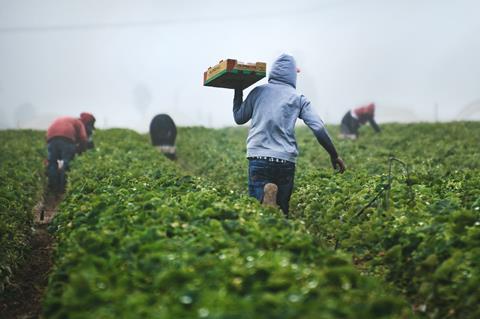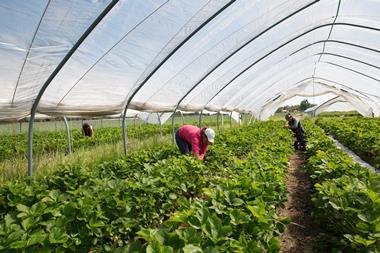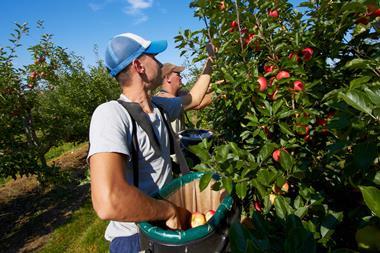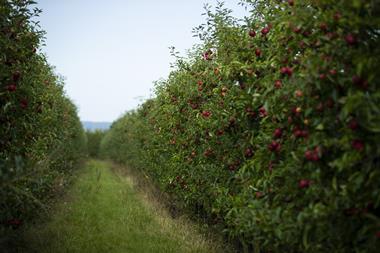
Farmers have welcomed Defra’s announcement to expand the 2023 seasonal worker scheme to 45,000 visas.
Last year the scheme for the UK’s horticulture industry was limited to 30,000 visas with an additional 10,000 cap available as a buffer. This year there will be a 15,000 uplift, Defra announced on Friday.
The NFU’s deputy president Tom Bradshaw described the expanded scheme as a “positive step forward and a relief for many growers who are currently struggling to find the skilled workforce needed to continue producing the nation’s fruit, vegetables and ornamentals”.
British Growers Association CEO Jack Ward agreed, describing it as “good news”, and adding “it is going to add a little bit of certainty back into it, but I don’t think it is going to remove some of the big challenges growers are facing in 2023”.
The delay in the announcement being made was understandable, according to Ward, due to the “high degree of political turmoil” this year. However Bradshaw warned it has come too late as some growers have already reduced production for next year.
Ward said: “Growers have faced a really tough year with soaring energy and fertiliser costs only adding to the pressure caused by significant workforce shortages, which resulted in £60m of fruit and vegetables being wasted in the first half of 2022 alone, and we expect the coming 2023 season to be equally challenging.”
This was echoed by Ali Capper, executive chair of British Apples & Pears, who said: “It is a shame we had to wait so long. To be towards the end of December again [means] businesses can’t plan, there is no certainty. But the increase in the number of permits and the additional permit operators are all welcomed by the industry.”
Fruit & veg in ‘crisis’ amid ‘endemic’ low returns to growers
In addition to expanding the scheme, the government has confirmed it will be appointing new scheme operators to ensure the visa route is efficient for growers and safe for workers.
Ward explained HOPS had been “added back into the mix”, which was “sensible” as the operator had previously been one of the “mainstays” of the sector.
The government also appointed a new team to ensure sponsors are abiding by workers’ rights, by improving training and processes for compliance inspectors and creating clear policies and guidance for operators where workers are at risk of exploitation.
Growers have said more needs to be done – particularly after the challenges of 2022 – during which, according to Capper, they faced production cost inflation of 23%.
Capper said growers needed the scheme to be “permanent so we don’t have to go through this annual cycle of negotiations – the cap on permits should be abolished and the visa needs to last for nine months”.
Capper also requested “certainty as soon as possible” on wage rates, which she feels should be benchmarked on the national living wage rather than being a “premium” above that as they were for the 2022 scheme.
Wage rates were also a concern for Nick Marston, chairman of British Berry Growers, as labour accounts for 50% of the cost of production for berries.
Soaring production costs leading growers to ‘walk away’ from sector, research finds
Marston said the association “will continue to press Defra and the Home Office to confirm measures which will further support our growers, such as removing the premium on wages for SAWS workers over and above the national living wage, and a relaxation on the six-month rule for the coming year to allow workers to return in time for the beginning of the season”.
Meanwhile, the NFU has called for “a minimum of a five-year rolling SAW scheme to give growers the confidence to invest in their businesses, and boost Britain’s production of nutritious and affordable fruit and vegetables”.
The first 4,000 visas will be made available to operators next week for daffodil growers to access the labour they need for harvest at the start of the year.
Farming minister Mark Spencer said: “Seasonal labour has long been part of the UK’s rural economy, and while it is right that we offer long-term support to increase the use of domestic labour, we also need to support businesses on the back of what has been a challenging year for food producers.”



















No comments yet